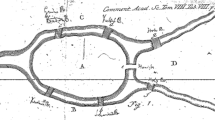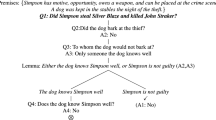Abstract
Allegedly, according to Avicenna’s theory of God’s knowledge of particulars, God knows particulars in a universal way or universally. But, it is controversial how we should interpret knowing in a universal way. It seems knowing in a universal way is a black-box in Avicenna’s theological context. However, Peter Adamson in his valuable ‘On Knowledge of Particulars’ has suggested a novel approach to decode this black-box in Avicenna’s theological context. According to Adamson, the key for this black-box is embedded in Avicenna’s epistemological context, i.e., Kitāb al-Burhān. It seems Adamson’s interpretation of Avicenna’s theory of God’s knowledge of particulars consists of two main steps. Firstly, on the basis of Kitāb al-Burhān, he tries to show that knowing in a universal way amounts to knowing syllogistically. For example, when, based on the syllogism “(I) all humans are animals, (II) Zayd is a human, and therefore (III) Zayd is an animal” one knows that ‘Zayd is an animal,’ one knows it universally. Secondly, on the basis of the first step, Adamson tries to show how we should interpret Avicenna’s theory. The upshot of Adamson’s interpretation is that God knows only essential features of particulars and not their accidental features. In this paper, I will argue that both steps in Adamson’s account of Avicenna’s theory of God’s knowledge of particulars face serious problems.
Similar content being viewed by others
Notes
(Adamson, 2005, p. 266).
(Adamson, 2005, p. 274).
(Adamson, 2005, p. 274).
(Adamson, 2005, p. 275).
See footnote 37 in (Adamson, 2005, p. 275).
Avicenna (1984a, book II. ch. 8, p. 172).
Avicenna (1984a, book II. ch. 8, p. 172).
Avicenna (1984b, book VIII. ch. 6, p. 359).
Avicenna (1984b, book VIII. ch. 6, p. 360).
Avicenna (1984a, book II. ch. 8, pp. 170–171).
Avicenna (1984a, book II. ch. 8, p. 173).
Avicenna (1984a, book II. ch. 6, pp. 72–73).
Avicenna (1984a, al-Shifāʾ: Kitāb al-Burhān book II. ch. 8, pp. 170–171). Emphasis mine.
See footnote 33 in (Adamson, 2005).
(Adamson, 2004, pp. 96–97).
This text is Adamson’s translation, (Adamson, 2004, p. 93).
(Adamson, 2004, p. 97).
(Adamson, 2004, p. 97).
This text is Adamson’s translation. See footnote 18 in (Adamson, 2004, p. 97).
Avicenna (1984c, p. 152).
Avicenna (1984c, p. 125).
Avicenna (1984c, p. 120).
As we said, Adamson also believes that God through His causation for x knows that x exists. But, for the sake of simplicity, I have not included this in (22).
Avicenna (1984c, pp. 66–67).
For Avicenna’s belief in God’s foreknowledge see: (Avicenna, 1993, Namaṭ VI. ch. 9, p. 131).
Avicenna (1984c, p. 67).
Avicenna (1984c, p. 118).
al-Ghazālī (2000, pp. 136–137). Marmura’s translation, slightly modified.
References
Acar, R. (2004). Reconsidering Avicenna’s position on God’s knowledge of particulars. In Interpreting Avicenna: Science and Philosophy in Medieval Islam. Proceeding of the Second Conference of the Avicenna Study Group. Edited by J. McGinnis. Leiden: Brill, 142–156.
Adamson, P. (2004). Non-discursive thought in Avicenna’s commentary on the Theology of Aristotle. In Interpreting Avicenna: Science and Philosophy in Medieval Islam. Proceeding of the Second Conference of the Avicenna Study Group. Edited by J. McGinnis. Leiden: Brill, 87–111.
Adamson, P. (2005). “On Knowledge of Particulars.” In Proceedings of the Aristotelian Society 105(1), 257–278.
al-Ghazālī. (2000). In M. E. Marmura (Ed.), The incoherence of philosophers (Tahāfut al-falāsifah). (tr.) (Provo UT: Brigham Young University Press).
Avicenna (1875). Compendium on the Soul (Maqālah fī al-nafs ʿalā sunnah al-īkhtiṣār). In “Die Psychologie des Ibn Sìnà.” Edited and translated by S. Landauer. Zeitschrift der Deutsche Morgenländischen Gesellschaft 29: 335–418.
Avicenna (1984a). al-Shifāʾ: Kitāb al-Burhān. Ed. by S. Zāyed, G.C. Aanawātī, S. Dunyā and M. Yūsef. Qum: Maktabah Āyatullāh al-Marʿashī.
Avicenna (1984b). al-Shifāʾ: Ilāhīyyāt. Ed. by S. Zāyed, G.C. Aanawātī, S. Dunyā and M. Yūsef. Qum: Maktabah Āyatullāh al-Marʿashī.
Avicenna (1984c). al-Taʿlīqāt. Ed. by ‘Badawī, A. Beirut: Maktabah al-Aʿlām al-Islāmī.
Avicenna (1992). al-Mubāḥathāt. Ed. by Bīdārfar, M. Qum: Intishārāt Bīdār.
Avicenna. (1993). al-Ishārāt wa-l-tanbīhāt. With Ṭūsī’s commentary at the bottom of page.Ed. By S. Dunyā, 4 vols. Muʾassisah al-Naʿmān.
Benevich, F. (2019). “God’s Knowledge of Particulars: Avicenna, Kalām, and the Post-Avicennian Synthesis.” Recherches de Théologie et Philosophié médiévales, 86(1), 1–47.
Kaukua, J. (2022). Future contingency and God’s knowledge of particulars in Avicenna. British Journal for the History of Philosophy. https://doi.org/10.1080/09608788.2022.2088469.
Leaman, O. (2002). An introduction to classical islamic philosophy. Cambridge University Press.
Marmura, M. E. (1962). Some aspects of Avicenna’s theory. Journal of the American Oriental Society, 82(3), 299–312.
Marmura, M. E. (2005). The metaphysics of the healing. Translation of: al-Shifāʾ, al-Ilāhīyyāt. Provo: Brigham Young University Press.
Nusseibeh, S. (2009). Avicenna: Providence and God’s Knowledge of Particulars. In Avicenna and His Legacy: A Golden Age of Science and Philosophy (pp. 275–288).
Zadyousefi, A. (2019). Does God know the occurrence of a change among particulars? Avicenna and the problem of God’s knowledge of change. Dialogue: Canadian Philosophical Review/Revue Canadienne de Philosophie, 58(4), 621–652. https://doi.org/10.1017/S0012217318000550.
Zadyousefi, A. (2020). Does God know that the flower in my hand is red? Avicenna and the problem of God’s perceptual knowledge. Sophia, 59(4), 657–693. https://doi.org/10.1007/s11841-019-0730-9.
Zadyousefi, A. (2022). A neglected interpretation of Avicenna’s theory of God’s knowledge of particulars. Asian Philosophy, 1–14. https://doi.org/10.1080/09552367.2022.2004494.
Acknowledgements
I would like to thank Davlat Dadikhuda and Michael Lessman for their helpful comments and discussion.
Funding
Research for this article is funded in part by a grant from the Iran National Science Foundation (INSF). Grant number: 98017627.
Author information
Authors and Affiliations
Corresponding author
Ethics declarations
Conflict of interest
There is no potential conflict of interest.
Additional information
Publisher’s Note
Springer Nature remains neutral with regard to jurisdictional claims in published maps and institutional affiliations.
Rights and permissions
Springer Nature or its licensor (e.g. a society or other partner) holds exclusive rights to this article under a publishing agreement with the author(s) or other rightsholder(s); author self-archiving of the accepted manuscript version of this article is solely governed by the terms of such publishing agreement and applicable law.
About this article
Cite this article
Zadyousefi, A. Adamson, Avicenna and God’s knowledge of particulars. Int J Philos Relig 94, 1–23 (2023). https://doi.org/10.1007/s11153-023-09869-y
Received:
Accepted:
Published:
Issue Date:
DOI: https://doi.org/10.1007/s11153-023-09869-y




